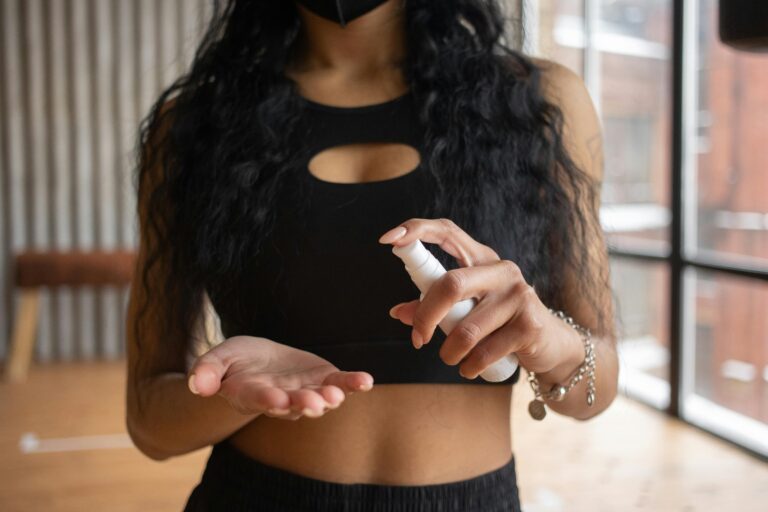In recent years, there has been a paradigm shift in the field of skincare, with growing recognition of the importance of the skin microbiome in maintaining skin health. The skin microbiome refers to the diverse community of microorganisms that inhabit the skin, including bacteria, fungi, and viruses.
While the concept of bacteria on the skin may seem unsettling, emerging research has revealed that these microbes play a crucial role in protecting against pathogens, regulating inflammation, and maintaining skin hydration.
Probiotic skincare has come outd as a promising approach to harnessing the power of beneficial bacteria to promote skin health and balance. In this article, we’ll explore the science behind the skin microbiome, the role of probiotics in skincare, and how probiotic skincare products can benefit your skin.
Understanding the Skin Microbiome
The skin microbiome is a complex ecosystem consisting of trillions of microorganisms that inhabit the skin’s surface and deeper layers. These microorganisms, which include bacteria, fungi, and viruses, form a symbiotic relationship with the skin, playing a crucial role in maintaining its health and function.
The composition of the skin microbiome can vary significantly between individuals and is influenced by factors such as genetics, environment, diet, and skincare practices.
The skin microbiome performs a variety of essential functions, including:
- Protecting against pathogens: Beneficial bacteria compete with harmful pathogens for space and resources on the skin, helping to prevent infections and inflammation.
- Regulating inflammation: Certain strains of bacteria produce anti-inflammatory compounds that help to calm and soothe the skin, reducing redness and irritation.
- Maintaining skin hydration: The skin microbiome helps to regulate the production of sebum, the skin’s natural oil, which plays a vital role in maintaining hydration and preventing dryness.
The Role of Probiotics in Skincare
Probiotics are live microorganisms that confer health benefits when consumed in adequate amounts. In skincare, probiotics are used to support the skin’s natural defense mechanisms and promote a healthy balance of beneficial bacteria.
Probiotic skincare products typically contain live probiotic cultures, as well as prebiotics and postbiotics, which nourish and support the growth of beneficial bacteria on the skin.
Probiotics work in several ways to improve skin health:
- Restoring balance: Probiotics help to restore equilibrium to the skin microbiome by promoting the growth of beneficial bacteria and inhibiting the growth of harmful pathogens.
- Strengthening the skin barrier: Probiotics enhance the skin’s natural barrier function, helping to prevent moisture loss and protect against environmental damage.
- Calming inflammation: Certain strains of probiotic bacteria produce anti-inflammatory compounds that help to reduce redness, irritation, and sensitivity.
Probiotic Skincare Products: How They Work
Probiotic skincare products come in various forms, including cleansers, serums, moisturizers, and masks. These products are formulated with live probiotic cultures, as well as prebiotics and postbiotics, to nourish and support the skin microbiome.
When applied topically, probiotic skincare products work synergistically with the skin’s natural microbiome to promote balance and harmony.
Some key ingredients commonly found in probiotic skincare products include:
- Lactobacillus: A genus of bacteria that produces lactic acid, which helps to exfoliate the skin and maintain a healthy pH balance.
- Bifidobacterium: Another genus of bacteria that helps to strengthen the skin barrier and protect against environmental stressors.
- Yeast extracts: These ingredients contain beneficial enzymes and amino acids that nourish and support the growth of beneficial bacteria on the skin.
The Benefits of Probiotic Skincare
Probiotic skincare products offer a range of benefits for all skin types, including:
- Improved hydration: By supporting the growth of beneficial bacteria and maintaining a healthy skin barrier, probiotic skincare products help to lock in moisture and prevent dryness.
- Reduced inflammation: Probiotics produce anti-inflammatory compounds that help to calm and soothe the skin, reducing redness, irritation, and sensitivity.
- Enhanced radiance: With regular use, probiotic skincare products can help to promote a more balanced and radiant complexion, restoring harmony to the skin microbiome.
Conclusion
The skin microbiome plays a vital role in maintaining skin health and function, and emerging research has highlighted the importance of probiotics in supporting a healthy balance of beneficial bacteria. Probiotic skincare products offer a natural and effective way to nourish and support the skin microbiome, promoting hydration, reducing inflammation, and enhancing overall skin health.
FAQs
Q1: Are probiotic skincare products suitable for all skin types?
Yes, probiotic skincare products are suitable for all skin types, including sensitive skin. However, it’s essential to choose products formulated with gentle, non-irritating ingredients and to patch test new products before incorporating them into your routine.
Q2: Can probiotic skincare products help with acne?
Yes, probiotic skincare products can help with acne by promoting a healthy balance of beneficial bacteria on the skin and reducing inflammation. Look for products formulated with probiotics and other acne-fighting ingredients like salicylic acid or niacinamide for best results.
Q3: How long does it take to see results from probiotic skincare products?
Results from probiotic skincare products can vary depending on factors such as skin type, the severity of the condition, and the specific product used. In general, you may start to see improvements in hydration, inflammation, and overall skin health within a few weeks of consistent use.
Q4: Can I use probiotic skincare products with other skincare ingredients?
Yes, probiotic skincare products can be used in conjunction with other skincare ingredients. However, it’s essential to introduce new products gradually and to monitor how your skin responds to avoid overloading it with active ingredients.
Q5: Are there any side effects of using probiotic skincare products?
Side effects from probiotic skincare products are rare but can occur in some individuals, particularly those with sensitive skin. If you experience any redness, irritation, or discomfort after using a probiotic skincare product, discontinue use and consult with a dermatologist for personalized advice.


